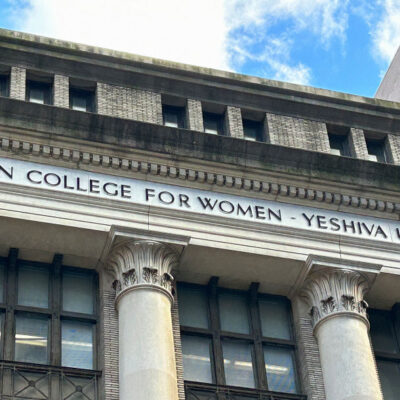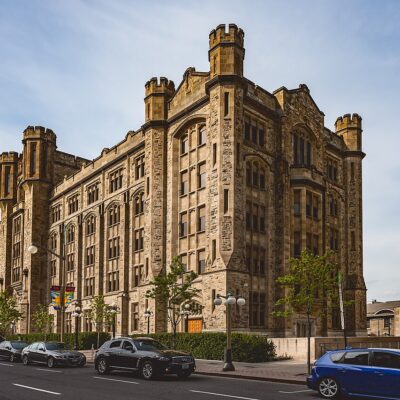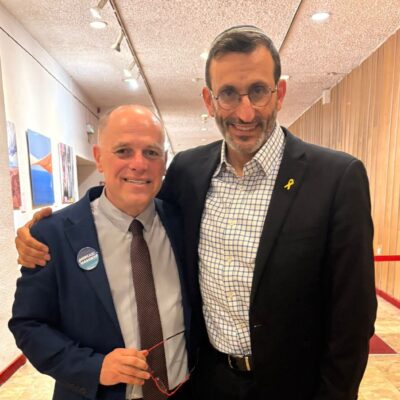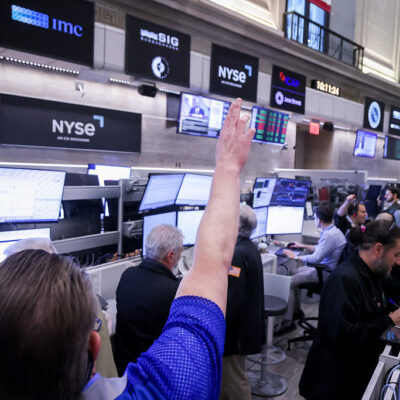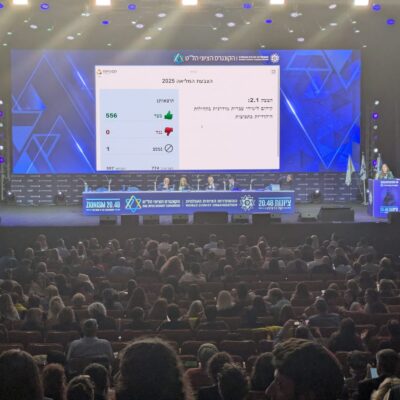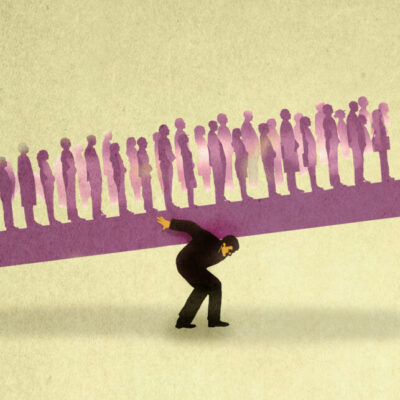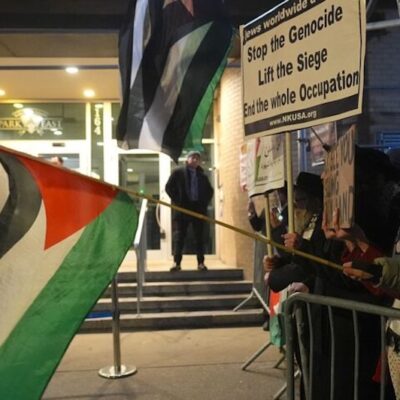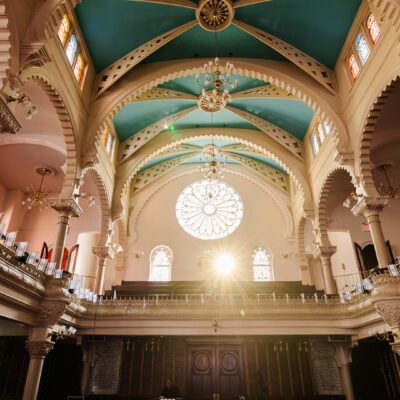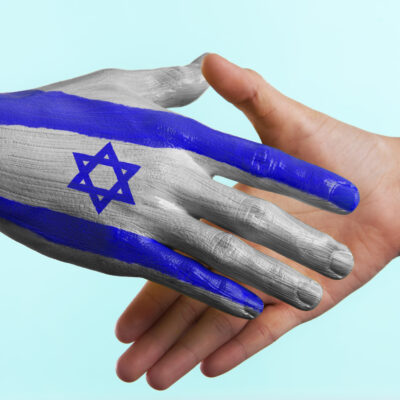Opinion
A LEGACY OF HOPE
Supporting work toward a shared society is vital for Israel
Fruitful, cooperative Jewish-Arab relations can seem impossible for anyone who looked on with dismay and horror at the excruciating aftermath of the horrific attack inside Israel on October 7, 2023, and the ensuing devastation in Gaza. Indeed, even with the new promise of a long-awaited ceasefire and hostage exchange, it is difficult not to feel hopeless and cynical about the future of the entire region.
For me, sinking into despair is not an option. Beginning in the days after the Oct. 7 attacks, one direction I’ve turned toward for hope and action is the difficult but essential work of building a shared society where all Israeli citizens, regardless of their backgrounds, have the opportunity to thrive — to freely express themselves, observe their religious faiths and engage fairly in the political process. As someone who has lived most of my life and practiced civil rights law in the American South, I am not unfamiliar with this struggle.
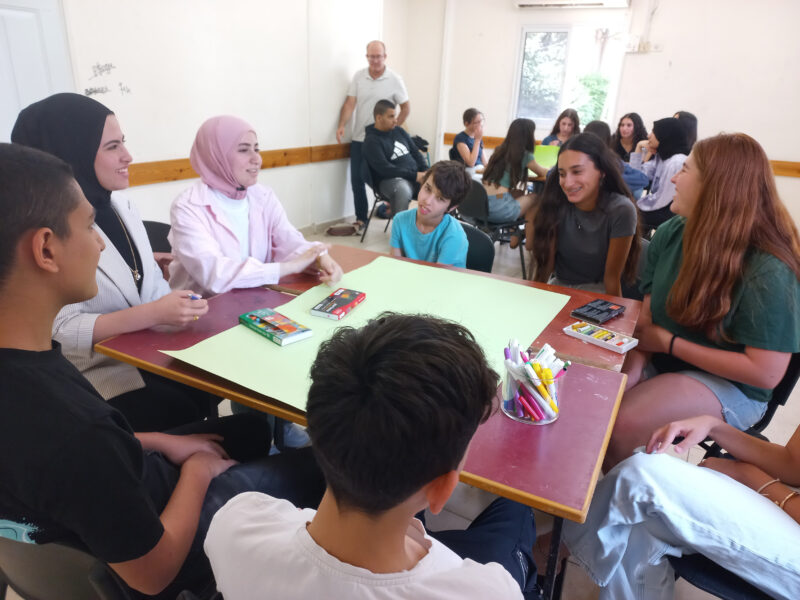
Courtesy
Participants in an encounter between young Jewish and Arab Israelis at Givat Haviva in an undated photo.
The natural place to turn my attention was Givat Haviva, the largest and oldest organization in Israel working toward a shared society between the country’s Jewish majority and the 20% of citizens who are Arab. In early 2024, I joined the board of directors of Friends of Givat Haviva. Later that year I had the honor of hosting Givat Haviva’s director of strategy, Mohammad Darawshe, during his visit to Atlanta. I have learned so much from him and from Michal Sella, the organization’s CEO, and am more committed than ever to the hard work of relationship-building, education and collaboration that are at the heart of Givat Haviva’s educational initiatives.
What compels me to get more involved is also deeply personal. My family’s connections with improving Jewish-Arab relations goes back nearly a century, a fact I recalled with new meaning and purpose in the wake of the events of Oct. 7, 2023.
My grandmother, Blanche Luria Serwer Bernstein, and her siblings collectively spent many years in Mandatory Palestine and then Israel. Blanche’s oldest sister, Rose Luria Halprin, lived there in the early 1930s. She was an advisor to Henrietta Szold, who founded Hadassah in 1912, and served as national president of Hadassah from 1932 to 1934 before moving to Jerusalem, where she helped build the Hadassah Medical Organization’s new hospital.
When Rose asked her sister Blanche to join her in Palestine, Blanche did what a distinct cohort of young, educated American Jewish women were choosing at the time: making the long journey from New York by ship and spending time on kibbutzim and in other communities to learn Hebrew, Arabic and Jewish history before returning to the United States. Their stories are similar to that of Hadassah Kaplan, Rabbi Mordechai Kaplan’s daughter, told in detail in the book Promised Lands: Hadassah Kaplan and the Legacy of American Jewish Women in Early Twentieth-Century Palestine, published in April 2025.
Being in that milieu at that transformative time in Jewish history inspired my grandmother’s interest in building relationships with local Arabs who later would become citizens of the State of Israel, and in early efforts to foster positive Jewish-Arab relations in the leadup to modern Israel’s independence. Her brother, Sydney, would become chair of the organization that still serves today as the U.S. affiliate of Givat Haviva. Blanche also spent many years on the board of Friends of Givat Haviva, remaining active through the end of her life in 1997. In her last years, Blanche published a book of Jewish and Arab folktales. For her, placing the stories in a single volume was a powerful metaphor for the coexistence of two peoples.
Reflecting after the Oct. 7 attacks on what I could possibly do to understand the legacy of my grandmother and other family members from her generation, I reached out to Friends of Givat Haviva, the U.S. based organization that my Uncle Sydney chaired and my grandmother supported for many years.
Givat Haviva, founded within a year of Israel’s independence, recognized early that it would take work to create a community of people who have mutual respect and common interests while honoring different identities, cultures and histories. Over more than seven decades, Givat Haviva has brought together thousands of Israeli Jewish and Arab schoolchildren and adolescents annually for meaningful interactions. Educational programs at Givat Haviva rebounded to full capacity soon after the events of Oct. 7, 2023.
A key reason that organizations active in Jewish-Arab relations continue to expand is the advocacy and support of American Jews, who have a genuine interest in ensuring that Israeli democracy is vibrant and strong.
Like me, some of my American Jewish friends have struggled to figure out what it means to have a relationship with Israel in this time of extraordinary crisis and disillusionment. Reflecting on my own family’s history and on the urgency of the current situation, I’ve concluded that it’s my turn — it’s time for me to pick this up and figure out what I can do.
I encourage other Jews in Atlanta, and across the country, to consider supporting pioneering efforts toward building cooperative ties among Israel’s citizens. This work is essential to ensuring a healthy democratic and shared society in Israel.
Tamara Serwer Caldas is a pro bono partner at Kilpatrick Townsend & Stockton LLP and a Friends of Givat Haviva board member.

 Add EJP on Google
Add EJP on Google